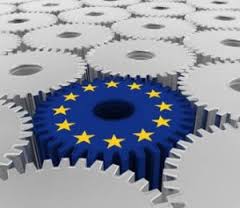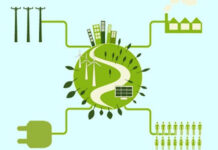
That’s the picture drawn by the Internet of Things’ Observatory research, inside the Milan’s Polytechnic School of Management. In details from the work emerges as the data linked to the 2,8 euro billions comes out from 2 macro – sections: the one about stabilized applications using cell phone connectivity (1,7 euro billions, +36%), and the other about applications using other technologies (1,1 euro billions, +47%).
“During 2016 we saw important maturity’ signs about Internet of Things in Italy: new Low power Wide Area communication’s networks, wider solutions’ offer, substantial market’s growth– says Angela Tumino, Internet of Things Observatory’s Manager – Here comes the time to go over the actual objects’ connection to move toward services. For example, a connected car will enable new services for safety, maintenance, energy saving, shared mobility. Smart Home devices will allow to control energy consumptions to reduce wastefulness or indicating violation’s attempts. In fabric producing plants’ monitoring will allow predictive maintenance’ logics and even machineries’ payment depending on the real use. In the Smart City gathered data could develop “operative systems” to better manage the land and tune efficient services for the community”.
With the whole market’s 34%, the leading sector’s segment is the Smart Metering one and the Smart Asset Management in the utilities. Specifically we moved from a 500 million value in 2015 to a 950 million in 2016, with a +90% percentage increase. In second place we find instead smart cars (20% of the market), with a 15% growth certifying 550 euro million. “GPS/GPRS boxes’ price reduction – as written in a note – lessens the growth in market’s value, but connected cars keep on increasing: at the end of 2016 they are 7,5 million (+40% compared to 2015), equal to Italian fleet’s one fifth”. About Smart Logistic transport’ supporting is 250 euro million’s data, market’s 9% (used solutions for corporate fleets and satellite alarms’ management), while Smart Home reaches an 185 million’s value and the market’ 7% (+23%), “with safety applications clear prevalence”.
Smart city, retail and smart agriculture still in embryonic state
Smart City, Retail and Smart Agriculture are sectors still in “embryonic state”. Especially about smart city the relevance so far is “quite poor in IoT market”, following the work. In fact we are about 230 euro million, equal at total’s 8% with some defined sectors’ exceptions like public transportation, with 200.000 means remotely controlled, and smart lighting, with 650.000 connected light poles.
“Smart City in Italy is still searching for an author: there are many started tests, but they are very few integrated between them and in lot of cases without a clear developing strategy in the territory – explains in a note Giulio Salvatori, Internet of Things Observatory’ Researcher – the study conducted on Italian municipalities show the usual barriers: lacking economic resources, appropriate skills’ shortage and, above all, unclear governance’ models. The outcome is the ventures’ most part failure after the first trial’s phase. To pass this situation is fundamental expressing a share national strategy: at central level we have to agree upon tasks and priorities for municipalities looking for the right compromise between the present projects’ anarchy and an extreme centralization”.
In the starting phase even the progression in iot’s industrial field. From a research made by the Observatory on more than 110 companies resident in Italy, displayed like ”Interviewed companies’ 45% recently started at least a project in Industrial IoT field, but even the 25% never hear something about that at all”.
An input for the sector’s development comes from the “latest evolutions in connectivity sphere”. “The availability of long range’s new IoT networks – underlines Antonio Capone, Telecommunications’ professor and working group’s member of Internet of Things’ Observatory – relieves developers about putting in practice a dedicated communication’ infrastructure and lower hugely the barrier to entry products and services based on innovative ideas”.
Per ricevere quotidianamente i nostri aggiornamenti su energia e transizione ecologica, basta iscriversi alla nostra newsletter gratuita
e riproduzione totale o parziale in qualunque formato degli articoli presenti sul sito.



















